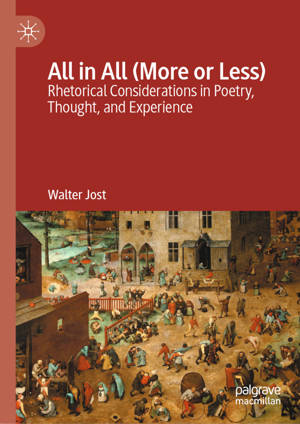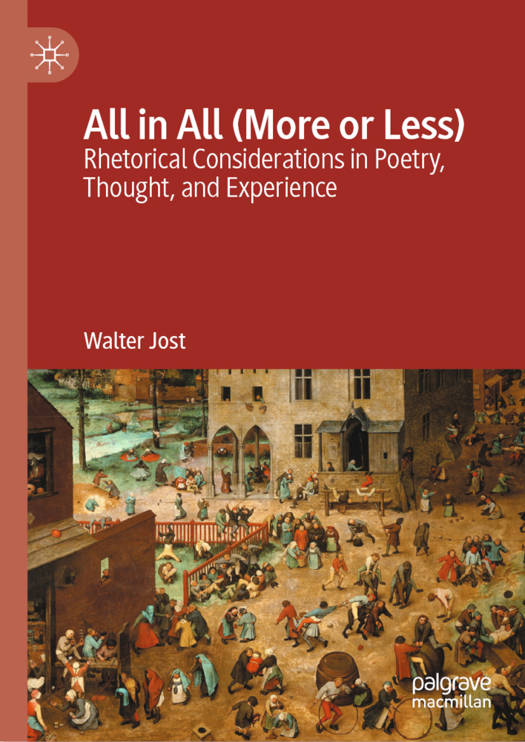
- Retrait gratuit dans votre magasin Club
- 7.000.000 titres dans notre catalogue
- Payer en toute sécurité
- Toujours un magasin près de chez vous
- Retrait gratuit dans votre magasin Club
- 7.000.0000 titres dans notre catalogue
- Payer en toute sécurité
- Toujours un magasin près de chez vous
All in All (More or Less)
Rhetorical Considerations in Literature, Thought, and Experience
Walter JostDescription
This book reinvents aspects of the rhetorical tradition as part of a philosophical pluralism oriented to "All-in-Allness". Its chapters unfold some of the ethical and intellectual responsibilities philosophy and rhetoric share, their commitments toward literature broadly conceived, the limited authority of their interpretations, and the kinds of judgments they issue in. Part One, drawing chiefly on Ludwig Wittgenstein and Richard McKeon, leverages a central line of argument regarding "Rationality" in the pragmatism of Robert Brandom. Part Two pivots to specific instances of the range of rhetorical argument found in surprising places and in sophisticated arrangements. The book as a whole culminates in Part Three, where the author demonstrates how "ordinary language criticism" fruitfully bears on cultural models - film, drama, novels, poetry - belonging to "American Low Modernism."
Spécifications
Parties prenantes
- Auteur(s) :
- Editeur:
Contenu
- Nombre de pages :
- 693
- Langue:
- Anglais
Caractéristiques
- EAN:
- 9783031562990
- Date de parution :
- 07-02-25
- Format:
- Livre relié
- Format numérique:
- Genaaid
- Dimensions :
- 148 mm x 210 mm
- Poids :
- 943 g

Les avis
Nous publions uniquement les avis qui respectent les conditions requises. Consultez nos conditions pour les avis.






